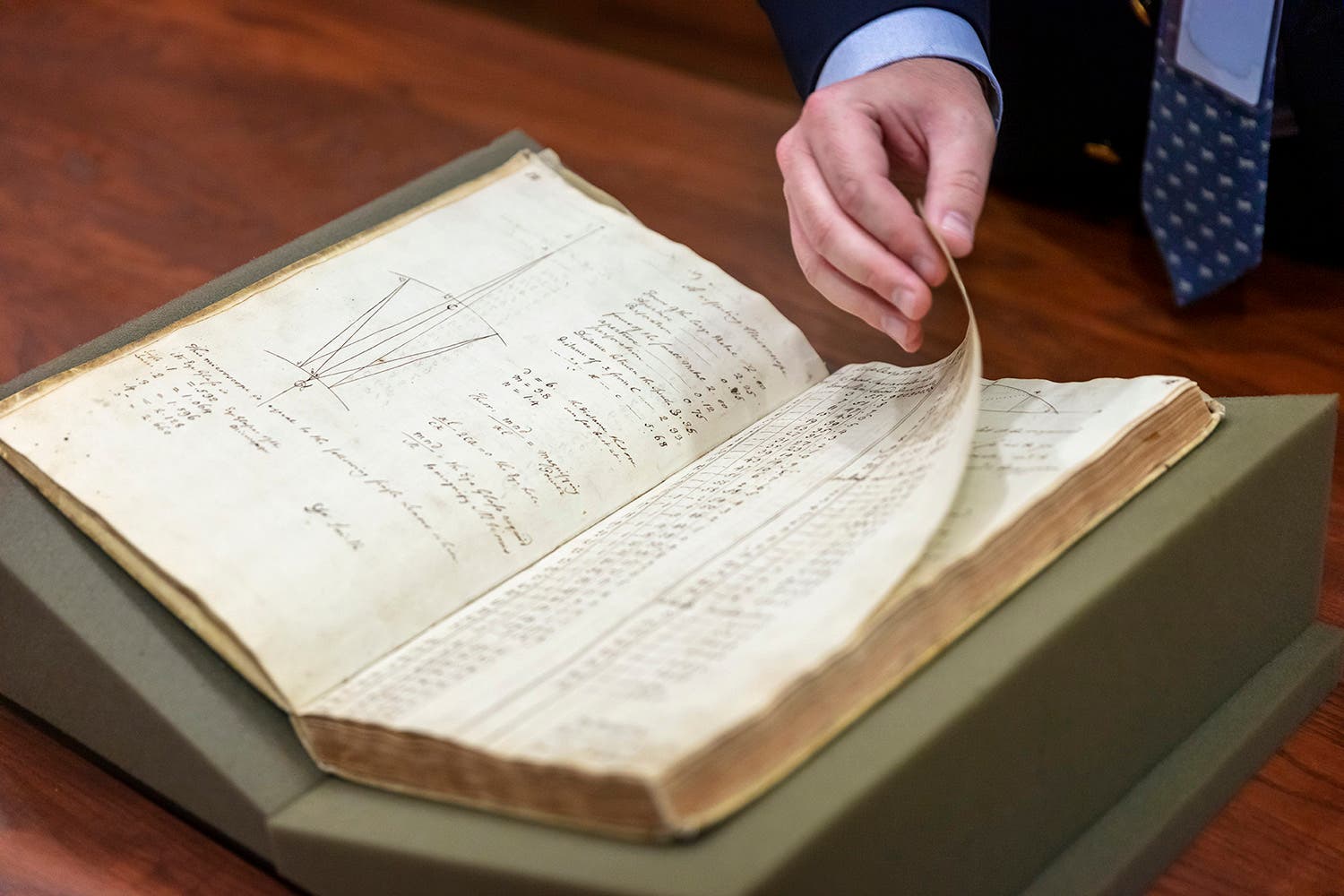Linda Hall Library Announces 2022-23 Fellows
The Linda Hall Library is pleased to announce the new fellowship cohort for the 2022-23 academic year. This fellowship cohort is one of the largest in the Library’s history and the first to be evenly divided between residential and virtual fellows. Residential fellows will travel to Kansas City to explore our collections, while virtual fellows will conduct research off-site using digitized materials.
“The Linda Hall Library looks forward to welcoming a new group of scholars to our reading room. Our staff will also continue to support virtual fellows who are unable to travel to the Midwest. Regardless of whether they conduct research in-person or virtually, we are excited to learn more about their projects and share their findings with people in Kansas City and around the world,” says Benjamin Gross, Ph.D., Vice President for Research and Scholarship at the Linda Hall Library.
This year’s fellows come from across the United States, as well as universities in Australia, India, Italy, Germany, Portugal, and the United Kingdom. Their projects reflect the global scope of our collections, including investigations of climate science in colonial Calcutta, railways and mines in Central Africa, and indigenous agricultural practices in the Andes.
2022-23 Linda Hall Library Fellows
Scholars with an asterisk (*) next to their name will be completing their fellowships virtually.
- Edward Halley Barnet, Hamilton College
From Music to Modern Neuroscience: An Alternative History of the Modern Sciences of the Brain - David Ceccarelli, University of Rome Tor Vergata; University of Florence*
“Making the invisible visible”: the magnesium oxide method in paleontological photography - Animesh Chatterjee, Technische Universität Darmstadt
Weathering Colonial Calcutta, 1800-1945 - Nicole Cote, The Graduate Center, City University of New York*
Shaping Possibilities for Public Knowledge and Community: Knowledge Infrastructures, Wildfires, and Engaging Disaster in the American West - Sebastián Díaz Ángel, Cornell University*
Weaponizing the Wilds. Counterinsurgency mappings and the geographical engineering of development in Cold War Latin America - Rajeshwari Dutt, Indian Institute of Technology Mandi*
The Link That Divides: The Troubled History of the Nicaragua Canal - Alfredo Escudero Villanueva, Florida International University*
The Land is the Laboratory: Natural Science, Empiricism and Indigenous Labor in the Andes - Caitlin Harvey, University of Cambridge*
Bricks and Mortar Boards: University-Building in the Settlement Empire, 1840-1920 - Sarah Kernan, Newberry Library*
Creating Cookbooks: Networks of Recipe Readers and Writers in England, 1300-1700 - Henry-James Meiring, Institute for Advanced Studies in the Humanities, The University of Queensland
Descent of Man in Transit: A Global Reception - José María Moreno Madrid, Centro Interuniversitário de História das Ciências e da Tecnologia (CIUHCT) / Universidade de Lisboa
Why did longitude become important, really? On the origins of one of the great scientific problems of the Modern Age - Javier Patiño Loira, University of California, Los Angeles
The Age of Subtlety: Rhetorical Ingenuity and Natural Science (1619-1654) - Michele Pflug, University of Oregon
"In Pursuit of Butterflies": Gender, Madness, and Natural History in the English Countryside, 1655-1715 - Brigid Prial, University of Pennsylvania
“Servants of Science:” The Work of Making Chimpanzees Lab Animals in 20th Century U.S. Psychology - Sonia Robles, University of Delaware\
Programming the Revolution: Music, Pedagogy and Propaganda in Mexican Radio - Edwin Rose, University of Cambridge*
Collecting, Constructing and Classifying Natural History - Christoph Sander, Bibliotheca Hertziana – Max-Planck-Institut für Kunstgeschichte*
Magnetic Margins: A Database of Reader Annotations in Early Modern Works on Magnetism - Corinna Schlombs, Rochester Institute of Technology*
A Menial Revolution: Data Entry, Labor Identity, and Inequality in Cold War Computer Automation - Phoebe Springstubb, Massachusetts Institute of Technology
The Inhabited Arctic: Indigenous Built Environments and American Empire in Alaska and the Far North, 1850-1980 - Peter Vale, University of California, Berkeley
Companies and the Making of the Colonial and Post-Colonial State in Central Africa, 1899-1985
Linda Hall Library fellowships are open to doctoral students, postdoctoral researchers, and independent scholars. Since 2011, the Library has supported more than 100 fellows from around the world, including historians of science, science, and technology studies (STS) researchers, art historians, literature scholars, and historians of the book. You can learn more about the Library’s fellowship program, former fellows, and how to apply here.






